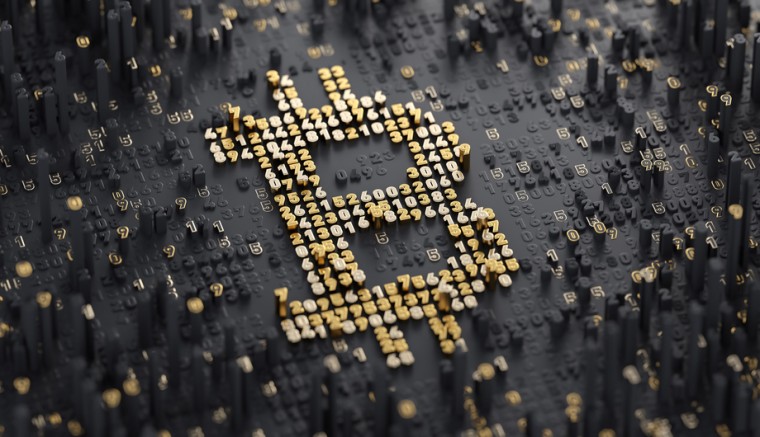Bitcoin: Satoshi Nakamoto's Legacy
Pretty much everyone in the crypto community knows that a whitepaper written by Satoshi Nakamoto started Bitcoin. The Nakamoto whitepaper hit the internet in 2008 and with the help of some hardcore cypherpunks, the first bitcoins were mined in 2009.
Seems like a simple enough story, doesn’t it?
Well, it isn't.
To date, we have no idea who Satoshi Nakamoto is, or if the name is representative of a secretive group of developers. Much like Bitcoin, at first no one cared about who Satoshi Nakamoto was. As Bitcoin became the world's leading cryptocurrency, the calls to investigate who Satoshi Nakamoto may be grew louder.
If we told you that we knew who or what Satoshi Nakamoto is, we would be lying. The author's favorite theory involves the Bogdanoff twins, cloned humans and the Western banking establishment, primarily because it is as absurd as it is hilarious.
Seems like a simple enough story, doesn’t it?
Well, it isn't.
To date, we have no idea who Satoshi Nakamoto is, or if the name is representative of a secretive group of developers. Much like Bitcoin, at first no one cared about who Satoshi Nakamoto was. As Bitcoin became the world's leading cryptocurrency, the calls to investigate who Satoshi Nakamoto may be grew louder.
If we told you that we knew who or what Satoshi Nakamoto is, we would be lying. The author's favorite theory involves the Bogdanoff twins, cloned humans and the Western banking establishment, primarily because it is as absurd as it is hilarious.

What we Know About Satoshi Nakamoto
Whoever Satoshi Nakamoto is (assuming it is a single person), they did seem to leave a cohesive trail of digital evidence until Bitcoin began to take off around 2011. From 2008-2011 there were hundreds of messages attributed to Satoshi Nakamoto and they communicated directly with early supporters of the project.
Hal Finney was a video game developer and early member of the 'cypherpunks'. He connected with Satoshi Nakamoto via a message sent on a cryptocurrency mailing list. Finney was extremely interested in the Bitcoin project, and actually mined some of the first bitcoins.
According to Finney, “I thought I was dealing with a young man of Japanese ancestry who was very smart and sincere. I've had the good fortune to know many brilliant people over the course of my life, so I recognize the signs.”
The description that Finney gives contradicts other research that has been done on how Satoshi Nakamoto communicates and when they were active online.

There are a few Potential Satoshis
Unsurprisingly, many people thought that Finney was Satoshi Nakamoto.
There is little evidence to corroborate this claim and other people are a much better fit. Also, Finney died in 2014 from ALS. That is about the same time that an overly zealous Newsweek reporter tracked down a Japanese man living in Los Angles who was named Satoshi Nakamoto at birth.
This Nakamoto had changed his name to Dorian Nakamoto and was hounded by the press for a little while. Suddenly, a long-dormant P2P Foundation account used by Satoshi Nakamoto came to life, and issued the statement, “I am not Dorian Nakamoto.”

A Few More 'Likely' Candidates Exist
According to Gavin Andresen (in 2016), he is, “98 percent certain,” that Australian Dr. Craig Wright is Satoshi Nakamoto. Andresen is another early Bitcoin proponent that worked directly with whoever Satoshi Nakamoto really is, though his statement drew some heavy criticism.
Earlier that year Wright had claimed that he was Satoshi Nakamoto and this unleashed a firestorm of controversy. In support of Wright's claim, there has been linguistic research that suggests that Satoshi Nakamoto isn't Japanese at all and is actually from a member country of the UK Commonwealth.
Many people refer to Wright as 'Faketoshi'.
There is still a lot of controversy over his claims and he has since made the statement that, "I'm sorry," and, "I believed that I could put the years of anonymity and hiding behind me. But, as the events of this week unfolded and I prepared to publish the proof of access to the earliest keys, I broke. I do not have the courage."
Let's file Wright under 'Who Knows?'

Nick Szabo Keeps Coming Up
Nick Szabo, who was involved with 'Bit Gold', a precursor to Bitcoin, was the feature of an investigative piece by no less than The New York Times (NYT). There is research that alleges that of 13 potential Bitcoin creators, Szabo's use of English is the most similar to Satoshi Nakamoto's.
The linguistic researchers reported that, "The number of linguistic similarities between Szabo's writing and the Bitcoin whitepaper is uncanny," and that, "none of the other possible authors were anywhere near as good of a match."
For what it's worth, Szabo denies the allegations. In the wake of the NYT piece, he tweeted, “Not Satoshi, but thank you.”

No Reason to be Famous
It wouldn't be inconceivable that if a person like Szabo had created Bitcoin, he would deny it today. People that worked on the 'Liberty Dollars' project in the 1990s faced legal prosecution, and Wright's claims aroused the interests of the FBI.
Other semi-decentralized (non-official fiat) currency projects like E-Gold were rapidly stomped into the ground by authorities, which is a big incentive for whoever Satoshi Nakamoto is to stay in the shadows.
In 2009 Satoshi Nakamoto wrote that, "The root problem with conventional currency is all the trust that's required to make it work. The central bank must be trusted not to debase the currency, but the history of fiat currencies is full of breaches of that trust. Banks must be trusted to hold our money and transfer it electronically, but they lend it out in waves of credit bubbles with barely a fraction in reserve. We have to trust them with our privacy, trust them not to let identity thieves drain our accounts."
Now that Bitcoin has become so popular, Satoshi Nakamoto probably has some very powerful enemies. They (Satoshi Nakamoto) are also probably in possession of a huge amount of bitcoins, which would only add to the fear that the establishment would project onto them.

How Could We Know for Sure?
At this point, anyone claiming to be Satoshi Nakamoto would have to do some pretty nifty tricks to prove himself to the global crypto community.
The same P2P Foundation account that got Dorian Nakamoto off the hook recently posted the word 'Nour', which may mean 'light' or 'glow' in Arabic. Clearly, accounts can be hacked and an account held by Bitcoin's creator would be a major target for any number of reasons.
Satoshi Nakamoto could also move some bitcoins out of their wallet but even this might not be enough to convince people. No one knows how well protected their private keys are, or who might be in possession of them now.
Until a lot more information comes to light, the real identity of Satoshi Nakamoto will remain a mystery.
user rating :
5.00 stars (1 votes)
Nicholas Say grew up in Ann Arbor, Michigan with a father that would read him the Wall St. Journal along side of other bed-time fare. He has traveled extensively, and been lucky enough to study a changing global economy in person. Nicholas spent many years in the Southern Cone of South America, sometimes in the middle of the countryside. Now he lives in the Far East, and writes on a variety of subjects.